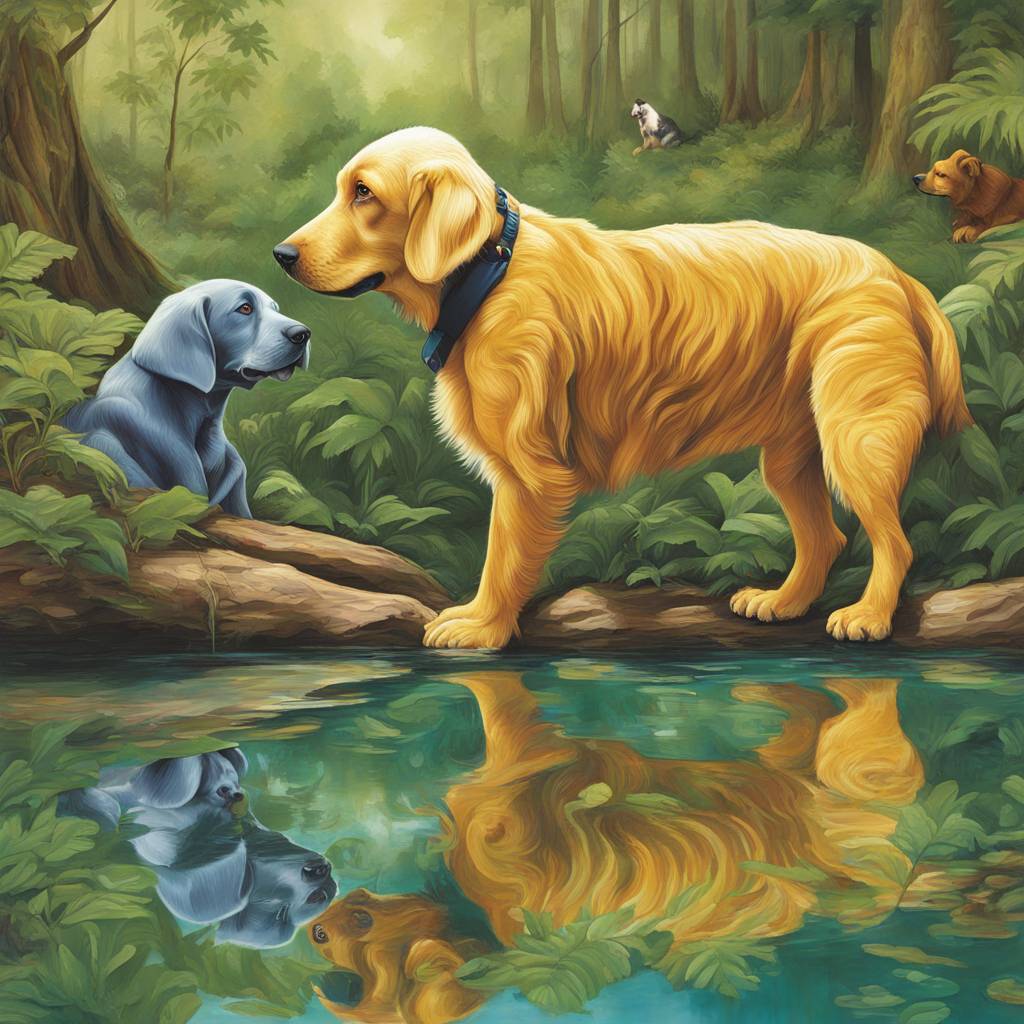Jane Goodall, a renowned primatologist, is known for her groundbreaking research on chimpanzees that began in 1960 in Tanzania. Her work has garnered international acclaim and shifted the world’s perception of animal intelligence. Despite this success, Goodall recalled facing criticism from the scientific establishment who told her she was wrong in naming and attributing personalities, problem-solving abilities, and emotions to chimps. This opposition led her to reflect on her childhood companion, a dog named Rusty, who taught her otherwise. Goodall credits Rusty for instilling in her the belief that animals, including dogs, are capable of feeling emotions, displaying intelligence, and forming meaningful connections with humans.
Rusty, a neighborhood dog who frequently visited Goodall’s family home, left a lasting impression on her. She described him as a unique and special dog, expressing gratitude for the lessons he taught her about the emotional depth and intelligence of animals. Goodall emphasized that any dog, not just Rusty, can exhibit emotions, intelligence, and an ability to solve problems. She highlighted the profound impact that animals can have on individuals, shaping their understanding of emotions, intelligence, and the interconnectedness between humans and animals. Goodall’s admiration for dogs is evident in her assertion that they are her favorite animals due to their faithfulness, unconditional love, and the valuable lessons they impart to humans.
Despite her significant contributions to chimpanzee research, Goodall has been vocal about her affection for dogs and the valuable role they play in human lives. In a 2015 video, she expressed her deep appreciation for the loyalty, love, and teachings that dogs offer. Goodall’s affinity for dogs reflects her belief in the emotional and intellectual capacities of animals, challenging traditional views that limit animals’ capabilities to exhibit complex emotions and problem-solving skills. Through her personal experiences with dogs like Rusty, Goodall underscores the importance of recognizing and respecting the rich inner lives of animals, cultivating deeper connections and understanding between humans and the animal kingdom.
Goodall’s recollections of Rusty highlight the transformative power of animals in shaping human perspectives and fostering empathy. Her childhood bond with Rusty served as a catalyst for her advocacy for animal welfare and conservation, inspiring her to challenge prevailing scientific attitudes that minimize animals’ cognitive and emotional capacities. By drawing parallels between her relationship with Rusty and her groundbreaking research on chimpanzees, Goodall emphasizes the universal nature of emotional connections between humans and animals, advocating for a more compassionate and inclusive approach towards all living beings. Through her work, Goodall continues to promote respect, understanding, and appreciation for the diverse forms of life that share our planet.
In reflecting on her career, Goodall credits Rusty and other animals for instilling in her a deep appreciation for the interconnectedness of all living creatures. Her experiences with dogs, chimpanzees, and other animals have enriched her understanding of the complex web of life on Earth, highlighting the shared emotions, intellect, and experiences that unite humans and animals. Goodall’s reverence for dogs as teachers and companions underscores the profound impact that animals can have on individuals, shaping their values, beliefs, and relationships with the natural world. By acknowledging the emotional depth and intelligence of animals, Goodall invites us to reconsider our relationships with animals and embrace a more compassionate and inclusive worldview that honors the inherent worth and dignity of all beings.








